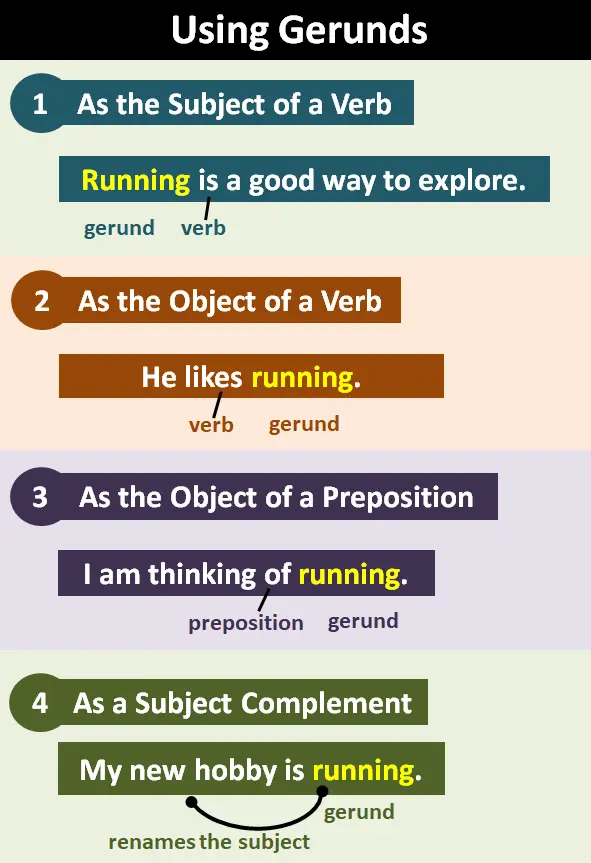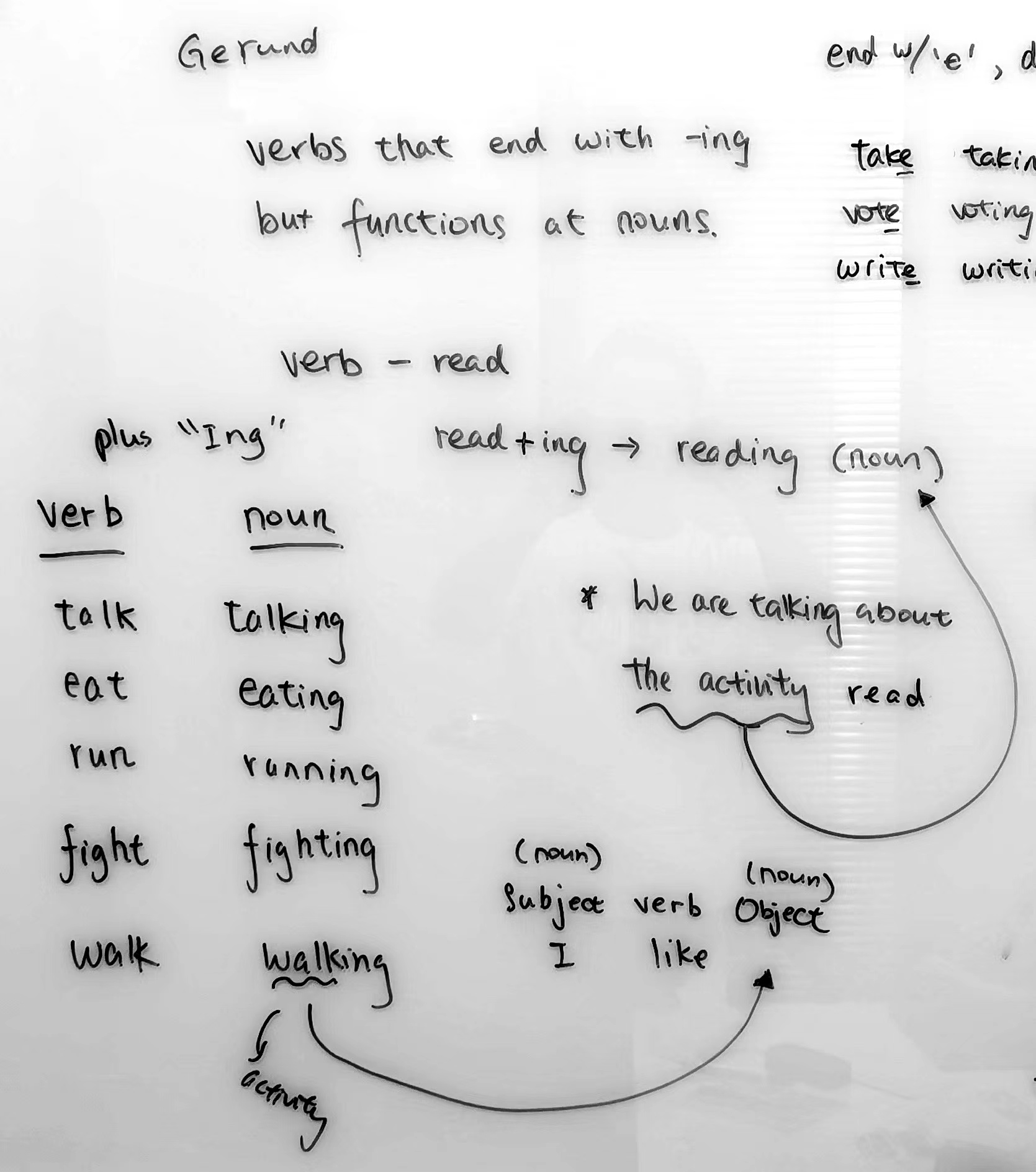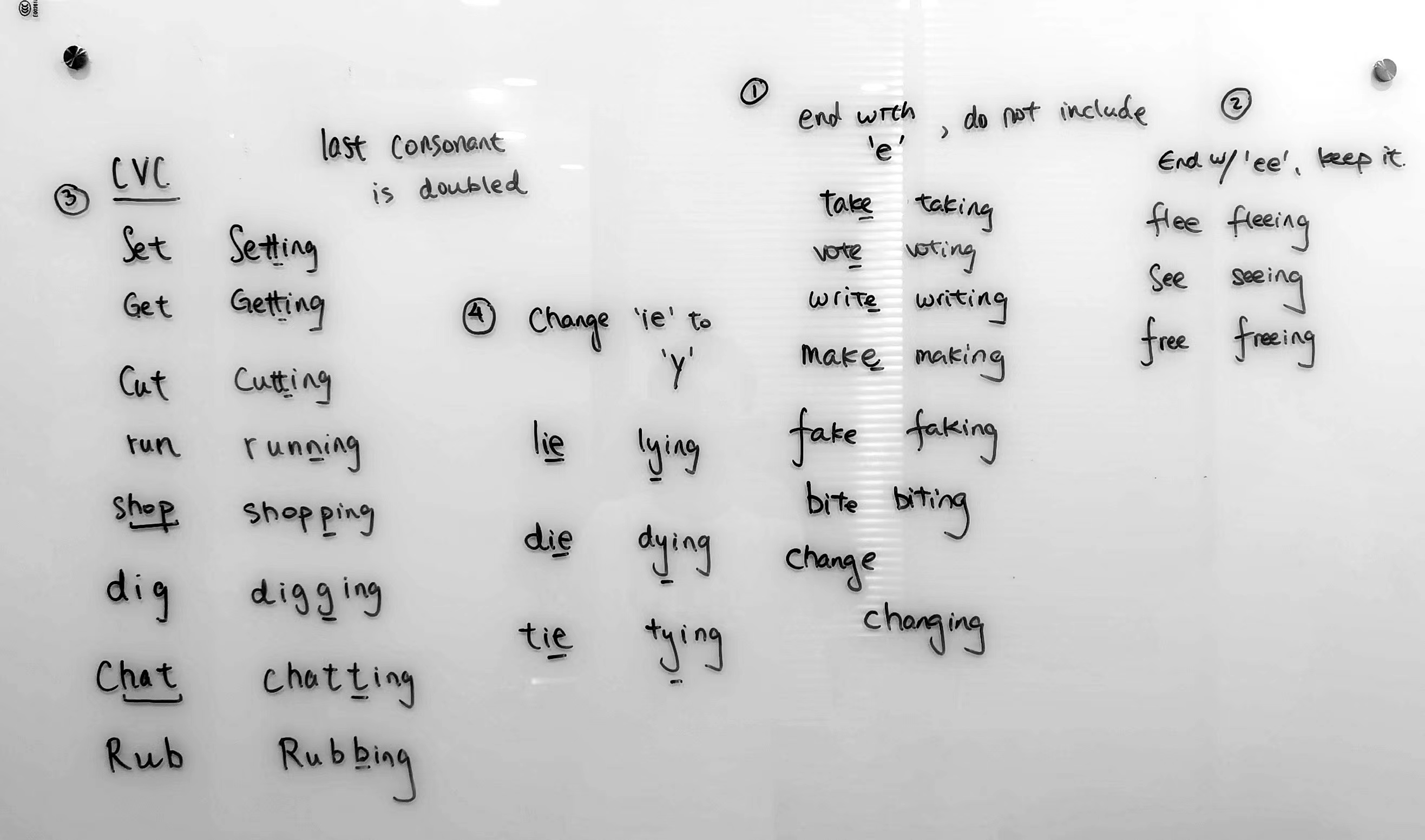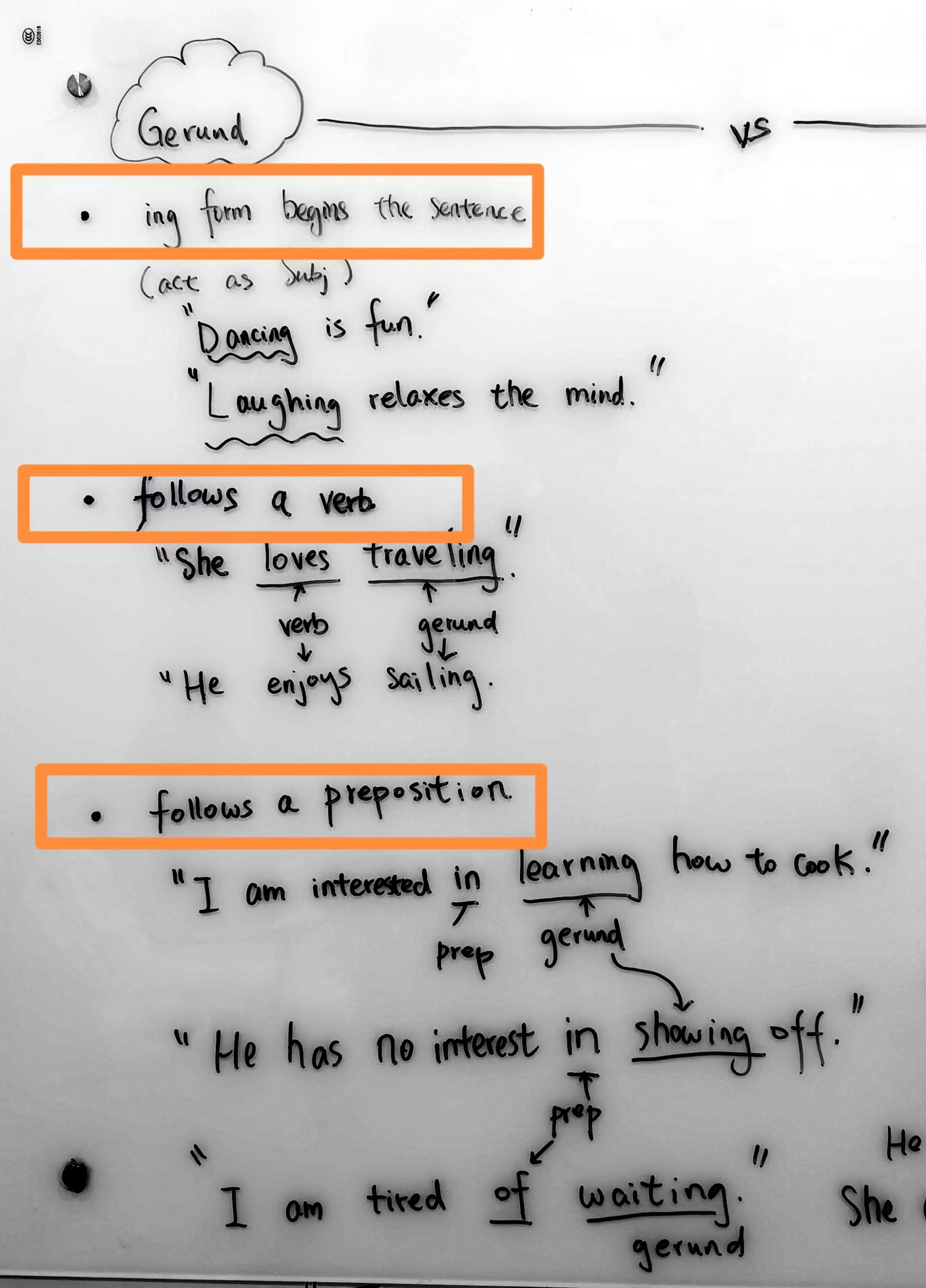ref – https://chineseruleof8.com/2024/08/19/how-does-adverbial-phrases-use-gerund-phrase/
What are Gerunds and how are they formed?
A gerund is a verb form that functions as a noun. A gerund is created by adding the suffix “-ing” to the base form of a verb. Like all nouns, gerunds can be used as subjects, objects of verbs, objects of prepositions, or complements.
For example:
Swimming is permitted in the lake. (subject of “is”)
I hate running. (object of the verb “hate”)
I was accepted after learning some Italian. (object of the preposition “after”)
Her passion is dancing. (complement of the subject “her passion”)
Gerunds are versatile verbal nouns that can function in various ways within a sentence, mirroring the roles of regular nouns.
Here’s a breakdown of their common uses:
-
Subject of a Sentence:
[Swimming] is my favorite exercise.
[Reading] helps improve vocabulary. -
Object of a Verb:
I enjoy [hiking] on weekends.
She loves [playing] the piano. -
Object of a Preposition:
He is good (at [solving] puzzles).
They are interested (in [learning] new languages). -
Complement of a Linking Verb:
Her hobby is [painting].
The best part of the trip was ([exploring] the city).
Remember, a gerund always ends in “-ing” and functions as a noun, representing an action or state. By understanding these different roles, you can effectively incorporate gerunds into your writing to create clear and concise sentences.



In what situations do we use Gerunds?

driving erratically
(The gerund driving is modified with an adverb, erratically.)
He(subj) loves (verb) driving (obj) erratically (adverb) [on the road] (adverbial).
Her(subj) favorite pastime (subj) is (lv) eating (gerund) chicken frantically.
eating = gerund
chicken = direct object of gerund “eating”
frantically = describes how the gerund ‘eating’ is performed.
A gerund complement
is a noun or noun phrase that follows a gerund and completes its meaning. Here are five examples:
Enjoy: She enjoys reading books in her free time.
object = reading books
gerund = reading
gerund complement = books
Consider: He is considering taking a gap year before college.
note: “is considering” is a present participle (main verb)
object = taking a gap year
gerund = taking
gerund complement = a gap year
Appreciate: I appreciate having the opportunity to work on this project.
object = having the opportunity
gerund = having
gerund complement = the opportunity
Practice: She spends hours practicing.
She – subject
spends – verb
hours – object
practicing – gerund as object complement
She spends hours practicing her piano skills every day.
She – subject
spends – verb
hours – object
practicing – gerund
her piano skills – gerund complement
practicing her piano skills – gerund phrase
every day – adverbial
Acting is merely the art [of keeping] a large group of people [from coughing]. (Sir Ralph Richardson, 1902-1983)
(Acting is a gerund as a subject. The gerunds keeping and coughing are objects of prepositions.
“a large group of people” – gerund complement of “keeping”